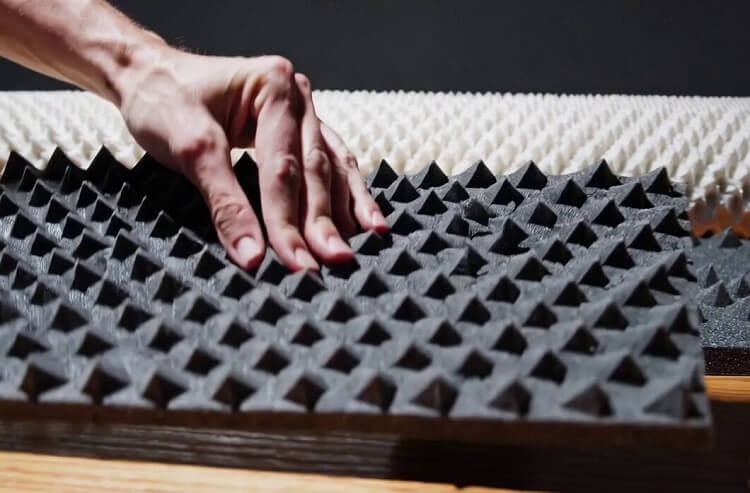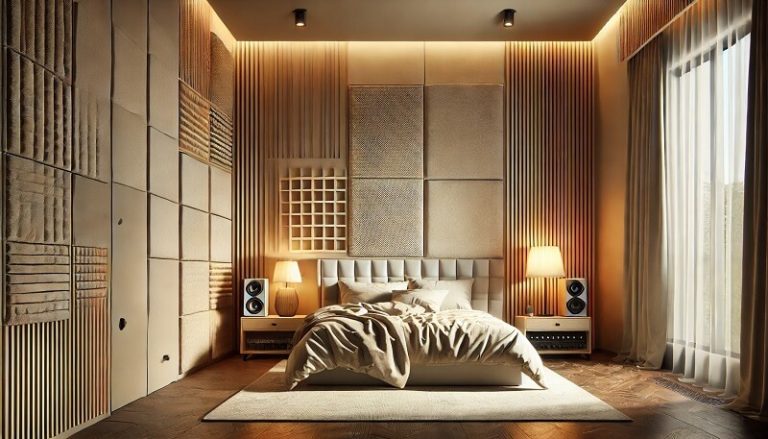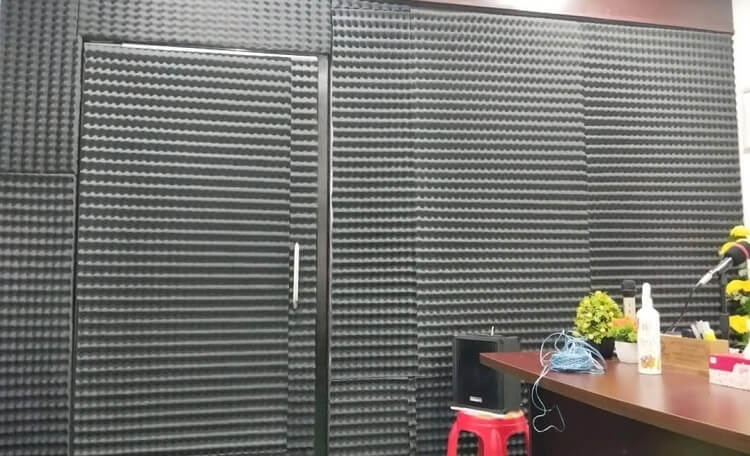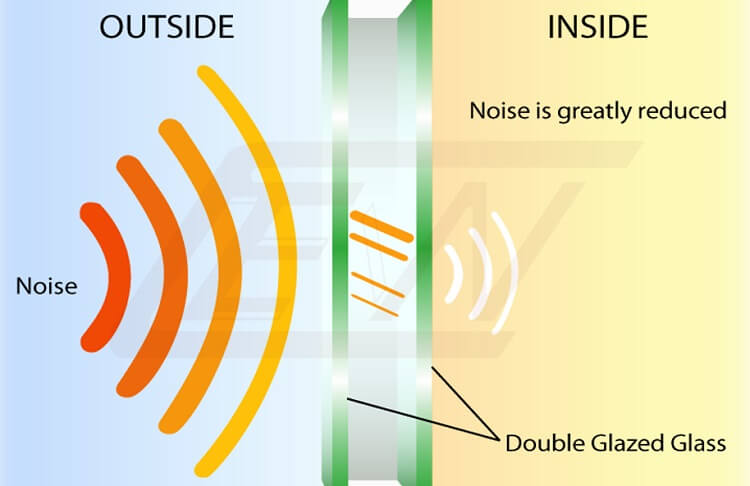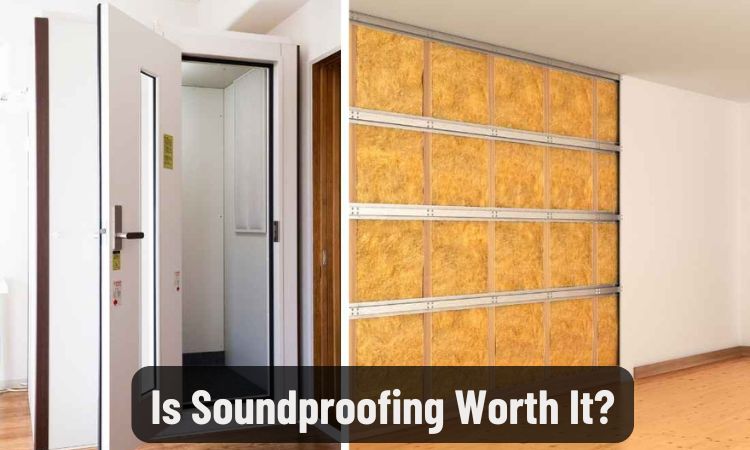
Is soundproofing worth it? It’s a question many homeowners and apartment dwellers grapple with, especially in today’s increasingly noisy world. If you’re seeking to reduce noise pollution, improve privacy, and enhance the comfort of your living or working space, then soundproofing might be the answer.
The ultimate decision depends on your individual needs, budget, and the specific noise challenges you face. This article, written by certified acoustical engineer John Smith, explores the benefits, costs, and effectiveness of various soundproofing techniques to help you determine if it’s a worthwhile investment for your situation.
What Is Soundproofing and How Does It Work?
Soundproofing encompasses a variety of methods and materials designed to minimize or eliminate sound transmission between spaces. It addresses the four fundamental principles of sound management:
- Adding Mass: Dense materials like drywall, concrete, and mass-loaded vinyl (MLV) obstruct sound waves, preventing them from passing through easily.
The heavier the material, the more effective it is at blocking sound.
- Damping: Damping compounds, such as Green Glue or QuietRock, convert sound energy into heat, reducing vibrations and minimizing sound transmission. These specialized viscoelastic materials are often applied between layers of drywall or other building materials.
- Decoupling: This involves separating structural elements to minimize the transfer of sound vibrations. Techniques include using resilient channels for walls and ceilings, and floating floors with sound-absorbing underlayment.
Decoupling breaks the direct connection between surfaces, reducing the pathways for sound to travel.
- Filling Cavities: Insulating materials like fiberglass, mineral wool, or dense-packed cellulose absorb sound waves within wall and ceiling cavities. This reduces the resonance and reverberation within the cavity, further minimizing sound transmission.
These techniques, often employed in combination, create a quieter and more comfortable environment.
Common Sources of Noise and Why They Matter
Understanding the source of unwanted noise is crucial for effective soundproofing. Noise pollution can significantly impact our well-being, contributing to stress, sleep disturbances, and difficulty concentrating.
According to the World Health Organization, excessive noise exposure can lead to various health problems, including cardiovascular disease and cognitive impairment.
External Noise
- Traffic and Urban Activity: The constant hum of traffic, sirens, airplanes, and construction noise can be a major source of stress and disruption, especially in urban areas.
- Environmental Sounds: Wind, rain, thunder, and even wildlife can contribute to unwanted noise, especially in less densely populated areas.
Internal Noise
- Neighbors and Shared Walls: Thin walls in apartments and condos can allow conversations, music, and footsteps to travel easily, compromising privacy and peace.
- Household Appliances: Washers, dryers, HVAC systems, and refrigerators often produce low-frequency noise that can be bothersome, especially in quieter homes.
Benefits of Soundproofing
Enhanced Comfort and Privacy
Soundproofing creates a tranquil environment, blocking out distracting sounds and ensuring private conversations remain confidential. This is invaluable for creating a peaceful home office, enjoying quiet time, or ensuring uninterrupted sleep.
Health and Well-Being
By mitigating noise pollution, soundproofing can significantly improve both mental and physical health. Reduced noise levels contribute to lower stress, improved sleep quality, and enhanced cognitive function.
Studies have shown a direct correlation between noise exposure and increased stress hormones.
Improved Property Value
Effective soundproofing can be a significant selling point for a home, particularly in noisy urban environments or areas with high population density. This desirable feature can increase a property’s market value and attract a wider range of buyers.
The Costs of Soundproofing
Soundproofing costs can vary widely based on the complexity of the project, the materials used, and whether you choose DIY or professional installation. Data from HomeAdvisor indicates that the average cost of soundproofing a single room ranges from $1,000 to $2,500.
Material Costs
- Affordable Options: Basic soundproofing solutions like acoustic foam panels, door seals, and weatherstripping can cost between $50 and $200.
- Mid-Range Solutions: Adding a layer of drywall with Green Glue damping compound can cost between $2 and $4 per square foot.
- High-End Solutions: More comprehensive solutions involving mass-loaded vinyl, resilient channels, and professional-grade insulation can range from $5 to $10 or more per square foot.
Labor Costs
Professional installation typically ranges from $50 to $100 per hour, depending on the project’s complexity and the contractor’s rates.
While professional installation adds to the upfront cost, it often ensures optimal results and minimizes the risk of errors.
When Is Soundproofing Worth It?
Soundproofing is a particularly valuable investment if you:
- Live in a noisy environment, such as near highways, airports, or busy urban areas.
- Share walls with neighbors in apartments, condos, or townhouses.
- Require quiet spaces for work, study, music practice, or relaxation.
- Have a home theater or entertainment room where sound quality and noise control are important.
DIY vs. Professional Soundproofing
DIY Approaches
- Simple Fixes: Adding thick rugs, curtains, bookshelves, and weatherstripping can help absorb and block some noise. This is a cost-effective solution for minor noise issues, especially for renters.
- Moderate Projects: Installing acoustic foam panels, door sweeps, and window inserts can provide a noticeable improvement in sound reduction for DIY enthusiasts.
Professional Installation
- Comprehensive Solutions: Professionals can address complex structural noise issues with advanced techniques like decoupling walls and ceilings, installing specialized soundproofing materials, and ensuring proper sealing.
- Higher Effectiveness: Professional installation typically provides a higher level of soundproofing effectiveness and is recommended for significant noise problems or long-term investments.
FAQ
What Types of Noise Can Soundproofing Reduce?
Soundproofing can reduce both airborne noises (conversations, music, TV) and impact noises (footsteps, vibrations, dropped objects). The effectiveness varies depending on the methods used and the frequency of the noise.
How Long Does Soundproofing Last?
With proper installation and maintenance, high-quality soundproofing materials can last for decades. Damping compounds and insulation materials may degrade over time, but solid barriers like drywall and concrete will remain effective for the life of the building.
Can Renters Soundproof Their Apartments?
Yes, renters can implement temporary soundproofing solutions like acoustic panels, curtains, rugs, door sweeps, and window inserts.
These solutions are non-destructive and can be easily removed when moving out. It’s always advisable to check with your landlord before making any modifications to the apartment.
What is Sound Transmission Class (STC)?
Sound Transmission Class (STC) is a rating system used to measure how effectively a building partition reduces airborne sound transmission. Higher STC ratings indicate better soundproofing performance.
For example, a wall with an STC rating of 50 will block significantly more sound than a wall with an STC rating of 30.
Conclusion
Soundproofing, while sometimes an investment, offers substantial benefits, from improved comfort, health, and well-being to increased property value. Weighing the costs against the potential improvements to your quality of life is crucial. By carefully assessing your specific noise concerns and exploring the various soundproofing options available, you can create a more peaceful and enjoyable living or working environment.
Whether you choose DIY methods or professional installation, achieving a quieter space is within reach, and the long-term benefits can make it a worthwhile investment. Remember to consult with a qualified acoustical engineer for complex projects to ensure optimal results.

